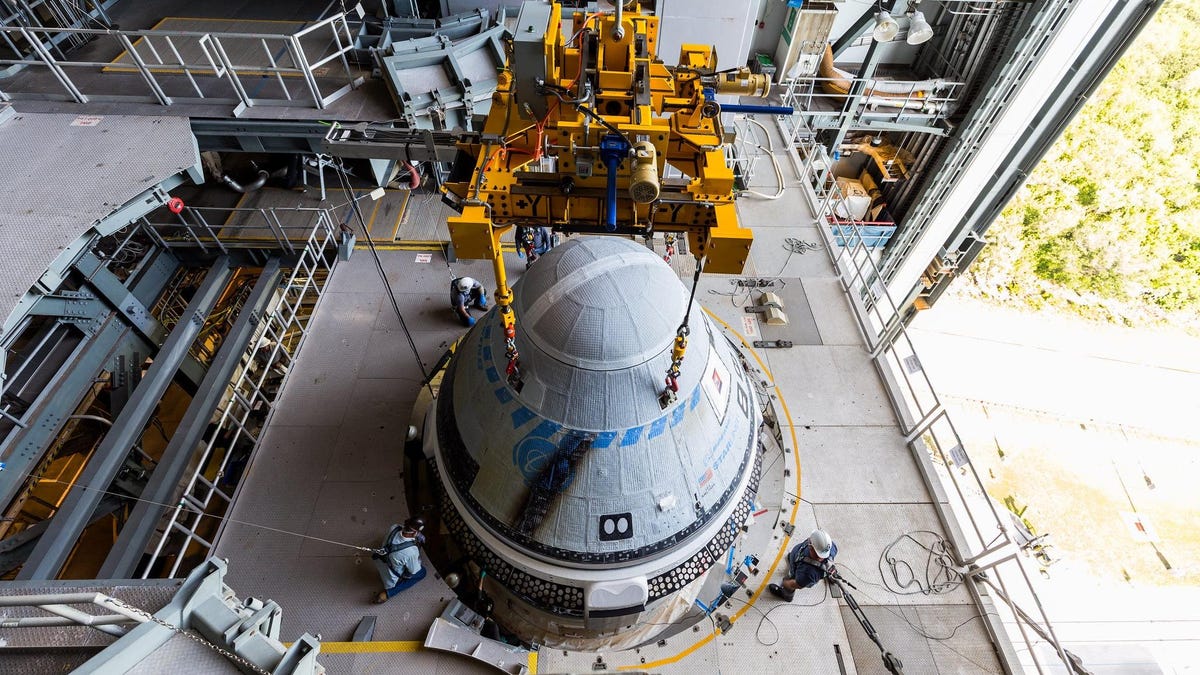Boeing’s Starliner Prepared for Crew Flight Test
Boeing’s Starliner spacecraft, after more than a decade of development, is now poised for its inaugural crewed test flight to the International Space Station (ISS) under the oversight of NASA.
The spacecraft is scheduled to launch on Monday at 10:34 p.m. ET from Cape Canaveral Space Force Station in Florida. Riding atop the Atlas V rocket developed by United Launch Alliance, the crew capsule will carry NASA astronauts Butch Wilmore and Suni Williams to the ISS and back.
NASA’s Live Broadcast of the Launch
NASA will provide live coverage of the launch on its website and YouTube channel. The coverage will commence at 6:30 p.m. ET, giving viewers a front-row seat to this significant event.
The Importance of Boeing’s Crewed Flight Test
Boeing’s Crewed Flight Test is a pivotal component of NASA’s Commercial Crew Program, representing a crucial step forward in the agency’s mission to facilitate the transportation of crew and cargo to the ISS and back. The endeavor is supported by a substantial $4.3 billion contract with NASA, emphasizing the significance of this undertaking.
Adding to the weight of this mission is the recent successful launch of SpaceX’s eighth crew to the space station, highlighting the competitive nature of the space exploration industry.
Challenges and Triumphs Along the Journey
Boeing faced substantial challenges en route to this milestone moment. The spacecraft’s initial uncrewed test flight in 2019 encountered difficulties due to a software automation glitch, resulting in an unplanned burn of excess fuel that prevented the craft from reaching its intended destination at the ISS. Subsequent investigations revealed a critical fault in the spacecraft’s mission elapsed timer, leading to recalibrations and reevaluations of the entire system.
Following the repercussions of the flawed first flight, NASA mandated a second uncrewed test flight to rectify any outstanding issues before proceeding with crewed missions. In May 2022, Boeing successfully completed the Orbital Flight Test-2 (OFT-2), setting the stage for the impending crewed test flight. However, challenges persisted, including the malfunction of a key thruster crucial for orbital maneuvering, underscoring the complexities of space travel and technology.
Despite diligent efforts, Boeing encountered further setbacks, leading to multiple launch postponements and meticulous reviews to ensure the safety and efficacy of the Starliner spacecraft. The perseverance and dedication exhibited by the Boeing team underscore the resilience required in the realm of space exploration.
As the world anxiously awaits the outcome of Monday’s launch, the significance of this mission cannot be understated, marking a pivotal moment in Boeing’s journey to expand the frontiers of human exploration in space.
Image/Photo credit: source url





